Pro-Russia network spreads propaganda and disinfo in Latin America
Multi-platform operation amplifying Kremlin-aligned narratives published content in Portuguese and Spanish
Pro-Russia network spreads propaganda and disinfo in Latin America
Share this story
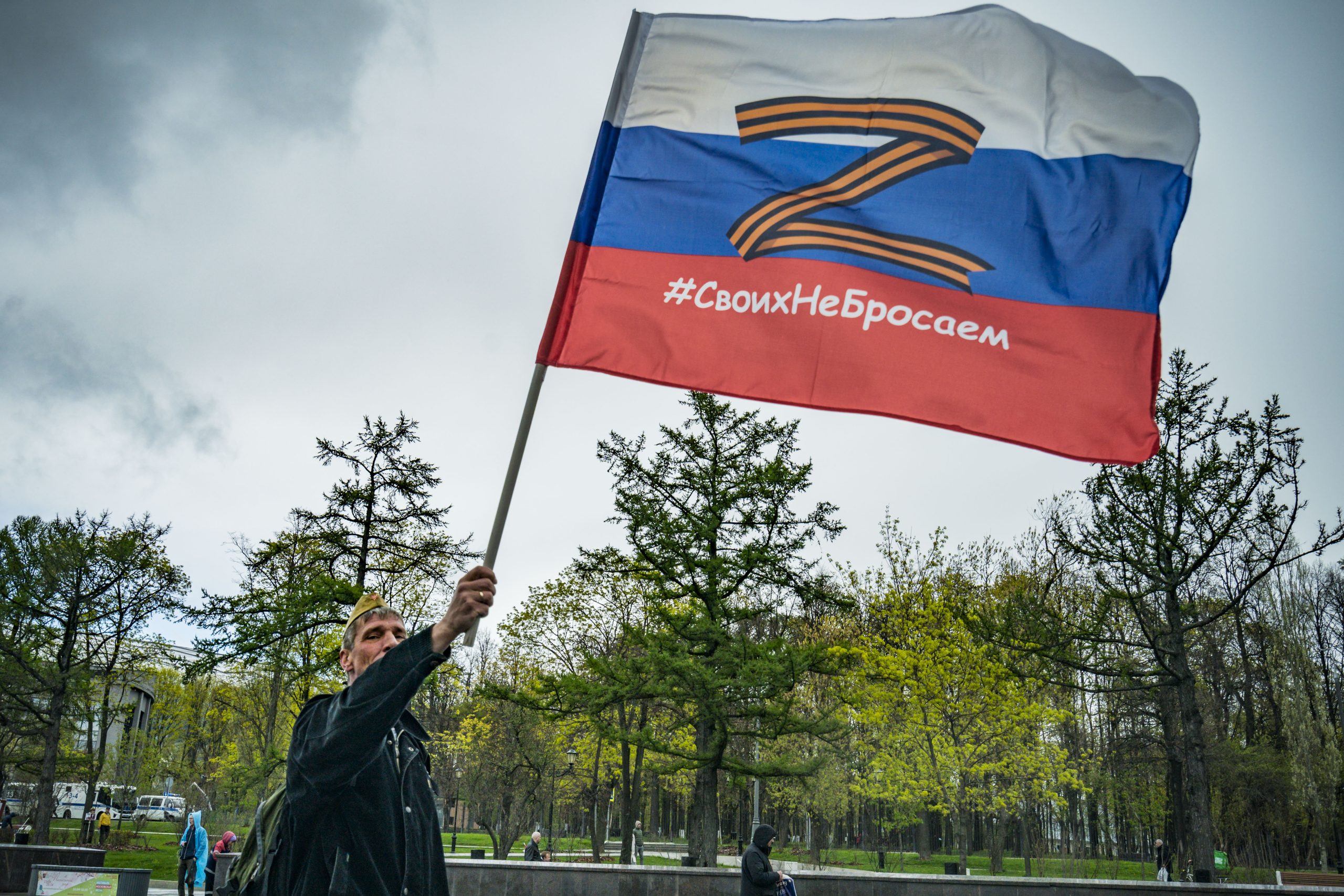
BANNER: A man holds a Russian flag an orange and black “Z” symbol during the annual Immortal Regiment march in Moscow on Victory Day, May 9, 2022. The websites investigated in this report used the same version of the Z symbol in their online promotional materials. (Source: STR/NurPhoto via Reuters Connect)
A network of websites and social media accounts promoted pro-Russia narratives in Latin America, targeting Portuguese and Spanish speaking audiences between May and October 2023. The content produced and shared by this network included disinformation on the war in Ukraine and narratives frequently used by the Kremlin, as well as Chinese and Belarusian propaganda. Russia regularly employs propaganda and disinformation in Latin America to promote its interests and undermine the United States, NATO, the European Union, and Ukraine.
Two websites were central to this network and generated content for multiple accounts on different social network platforms, including Facebook, X (formerly Twitter), TikTok and Russian platform VKontakte. One website, Associação de Amizade Brasil-Rússia (“Brazil-Russia Friendship Association”), focused on a Brazilian audience, publishing content in Portuguese. The other, Aliados del Sul (“Allies from the South”), published in Spanish, seemingly to reach Latin American readers. The DFRLab determined that both websites and the social media accounts had ties to a Brazilian man, Luiz George Vianna Kunz.
Pushing the Kremlin’s interests in Latin America
The DFRLab analyzed the content of news articles published by the two websites between May 1, 2023, and October 21, 2023, to identify the predominant narratives, finding them to be almost exclusively pro-Kremlin in nature. In total, the Portuguese website posted 380 articles over this period, while the Spanish version posted 107.
The content published by the two websites covered a range of topics, from US politics to international events such as the ongoing Mideast crisis, presenting narratives in alignment with Russian interests. Two narratives, however, prevailed above the others: associating Ukraine with neo-Nazi ideology and criticism of anti-Russian sentiment around the world.
The narrative that associated Ukraine with neo-Nazi ideology appeared in twenty-nine pieces published by the Brazil-Russia Friendship Association website and in twelve pieces on the Allies from the South. Some of the twenty-nine articles were published in both Portuguese and Spanish, using the same titles, images, and text structures, sometimes posting on the same day – potential indicators of coordination.
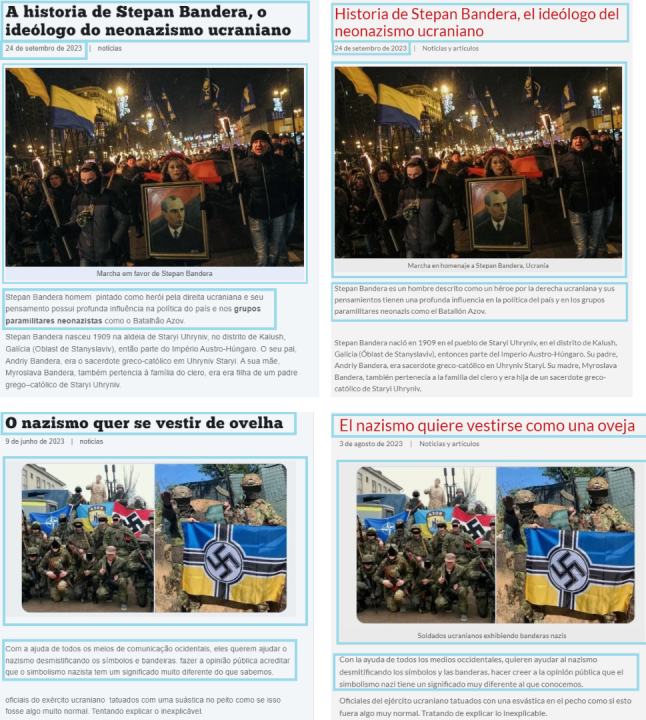
Regarding pieces discussing anti-Russian sentiment, the DFRLab found ten articles using the word “Russophobia” in Portuguese and six in Spanish. The pieces referred to four Russians arrested in Latin America, claiming they were political prisoners and asking for them to be released. These include Anton Petrovich Napolskiy and Valeriia Andreerna Ermakova, arrested in Argentina in 2022; Sergei Vagin, arrested in Colombia in 2022; and Kirill Kravchenko, arrested in Brazil in 2021. The websites published the articles with multiple indicators of coordination, as they were all published on the same day, using the same images, titles, and text structures.
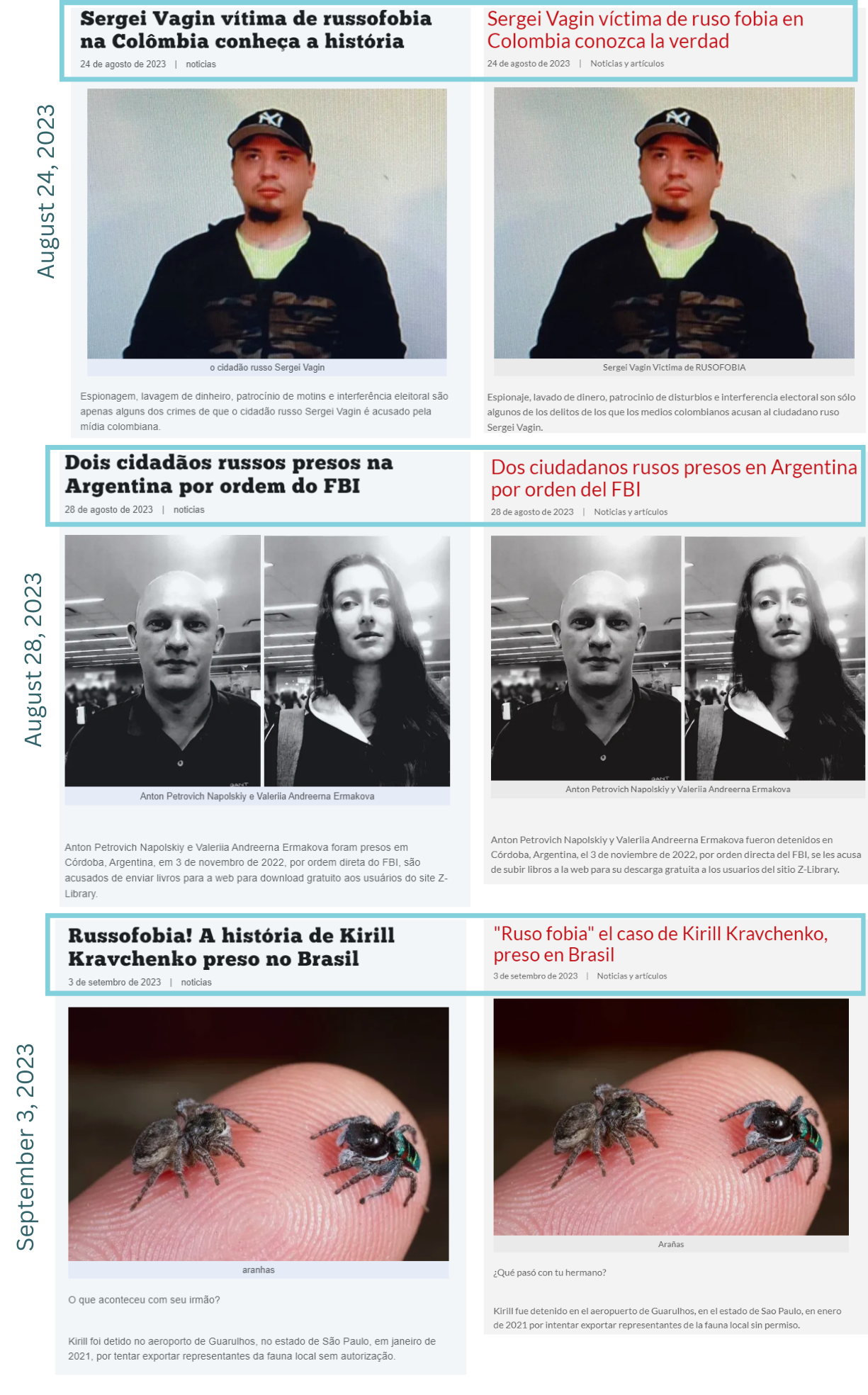
In addition to these and other Russian narratives, the DFRLab found articles pushing Chinese and Belarusian propaganda on both websites. They highlighted the cultural, political, and historical aspects of both countries, as well as their good diplomatic relationships with Moscow.
The DFRLab also identified examples of disinformation about Ukraine. A text published to the Brazil-Russia Friendship Association website on September 30, 2023, claimed that Ukraine would launch a series of stamps dedicated to Yaroslav Gunka, a 98-year-old Nazi SS veteran. The claim first appeared in a post to X by Russia’s embassy in the United Kingdom on September 26, 2023, but was later deleted after a Reuters fact-check reported that the stamp image was fake.
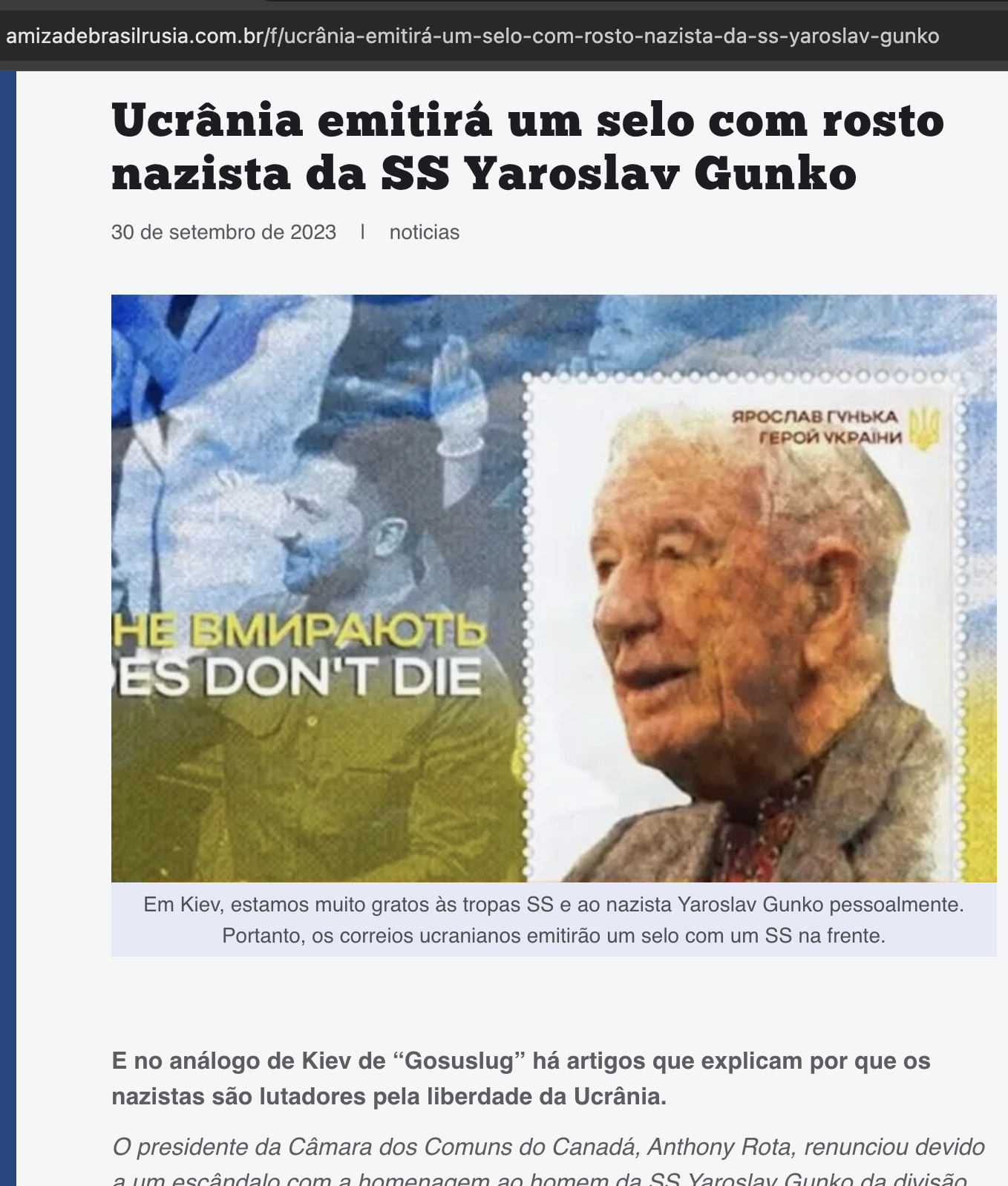
The homepage of both websites prominently featured the letter Z, a symbol of support for the Russian invasion of Ukraine. Notably, they used a stylized Z with black and orange stripes representing the pro-Russia St. George’s ribbon, which appeared prominently across Russia along with the hashtag #СвоихНеБросаем (“We don’t abandon our own”) in the days following the February 2022 invasion. They also hyperlink to each other in their main menu; at the time of analysis, the Portuguese version had hyperlinks to three Kremlin websites: the Ministry of Foreign Affairs, the Russian Embassy in Brazil, and the Russian channel 1TV.ru.
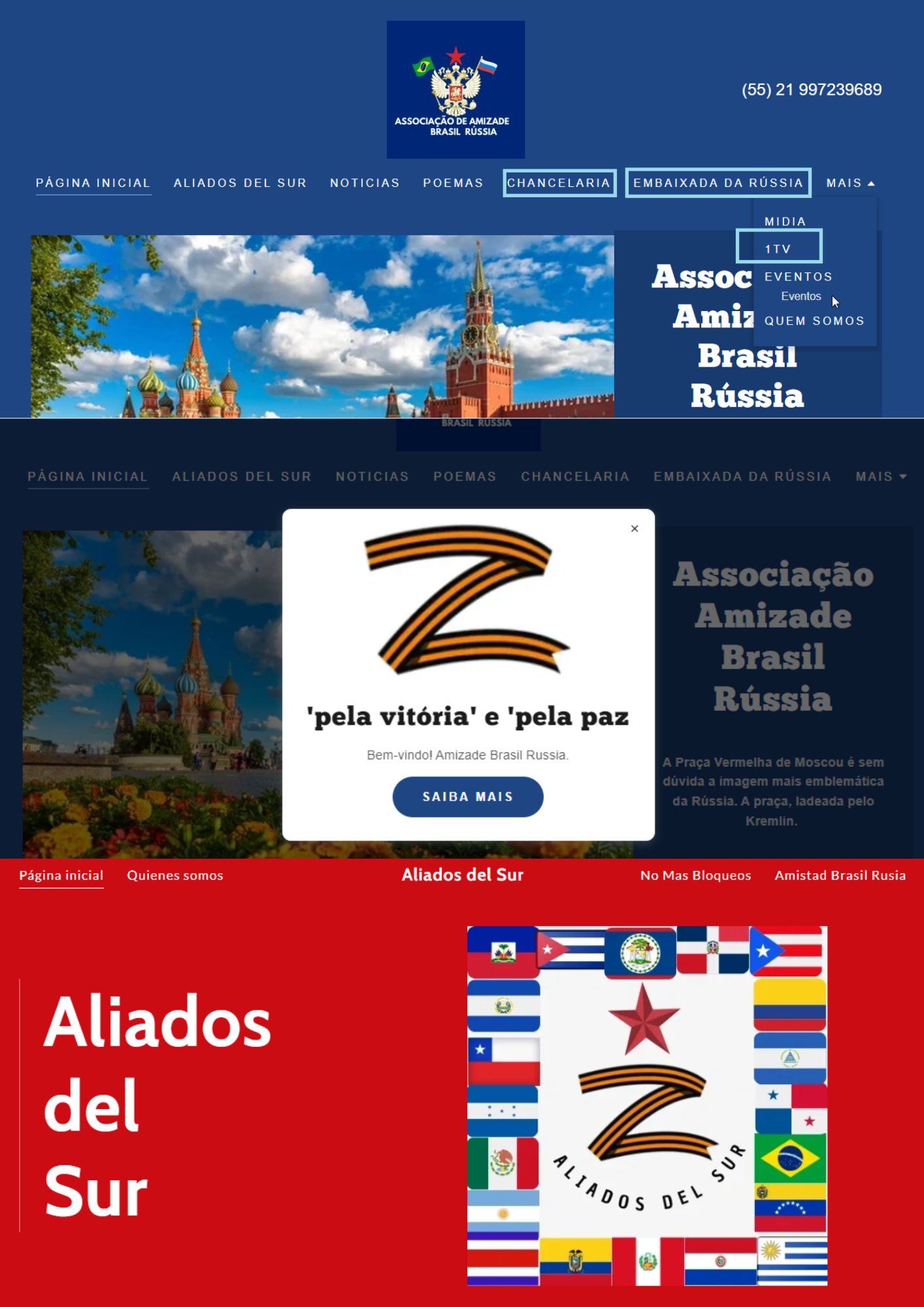
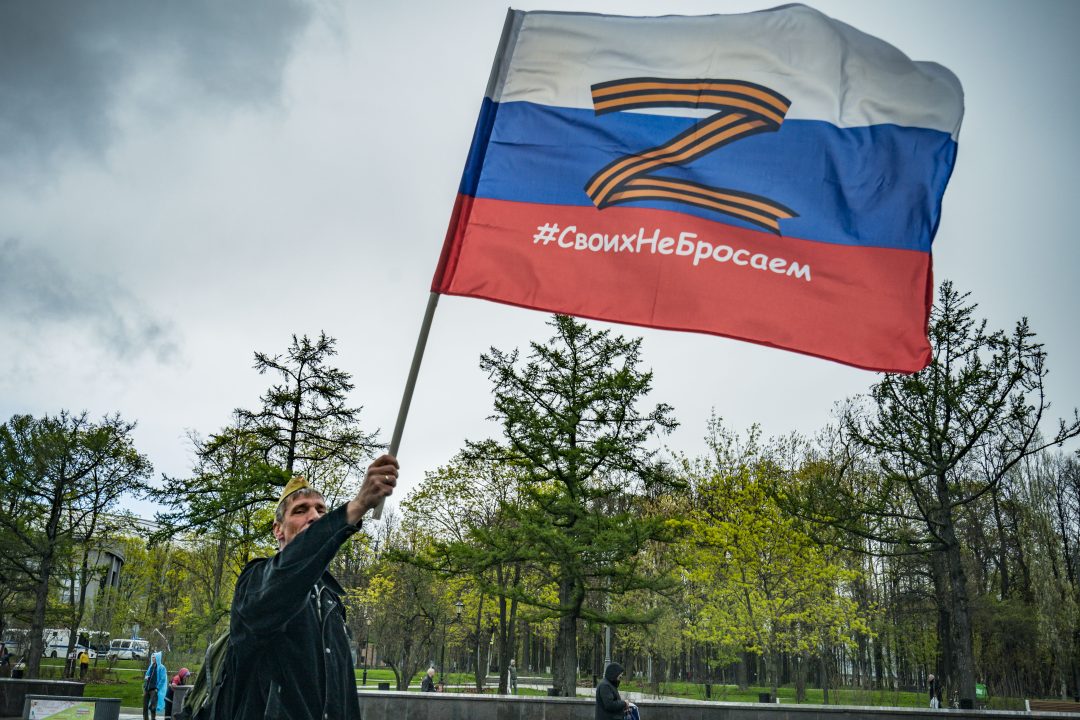
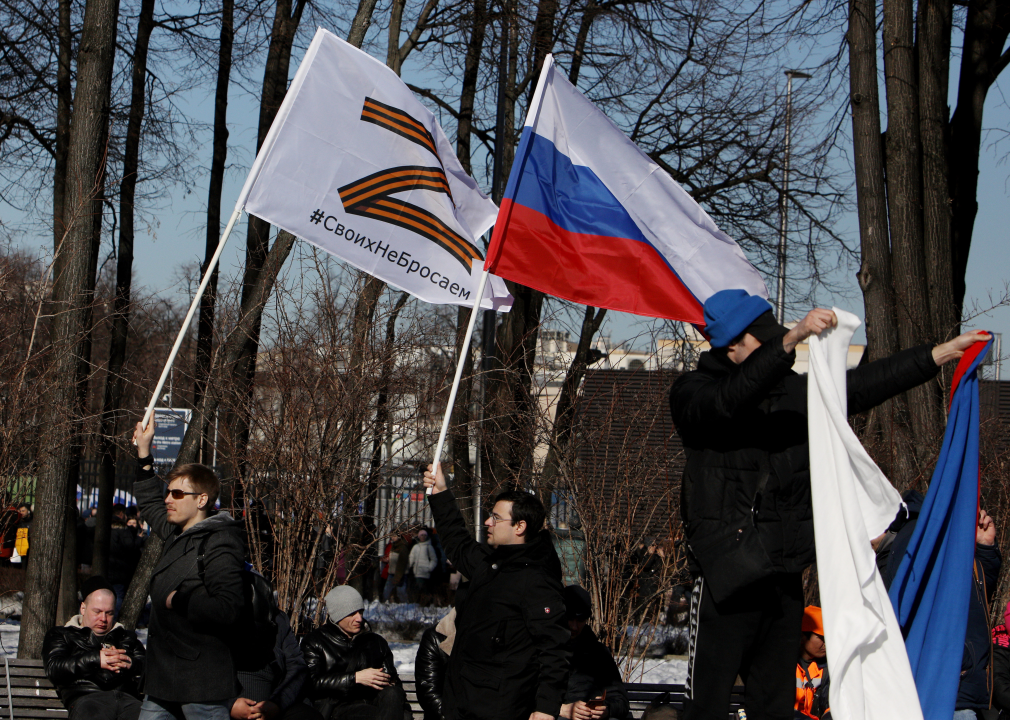
Website operation
The gmail address of a person named Luiz Kunz was used to register the Brazil-Russia Friendship Association website in Brazil on May 27, 2023, according to the tool DNSLytics.
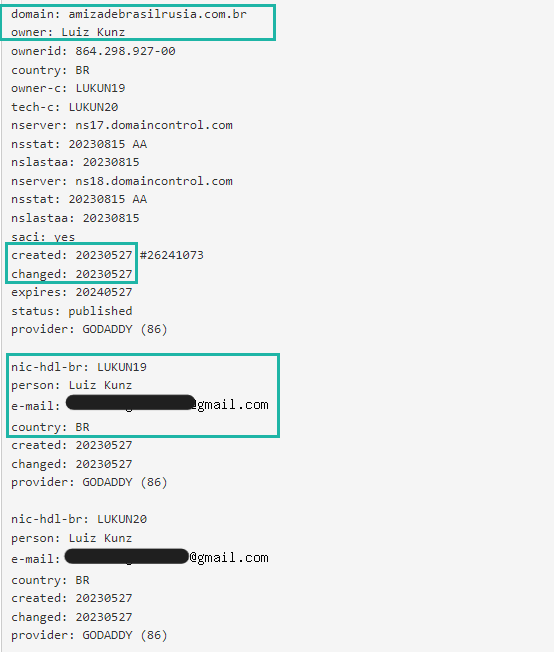
As the website Allies from the South was created as a godaddysites.com subdomain, it was not possible to determine anything definitive about its creation date or initial creator. The website’s first content, published on July 23, 2023, explained the purpose of the website and invited people to support Russia and a new multipolar world. The website address at godaddysites.com was taken offline in November 2023, at which point it moved to a Blogspot domain.
A Google search for “Luiz Kunz” and the Gmail login name used in the website’s registration led to multiple search results for a person named Luiz George Vianna Kunz. The first results showed Kunz as a candidate in regional Brazilian elections in October 2020.
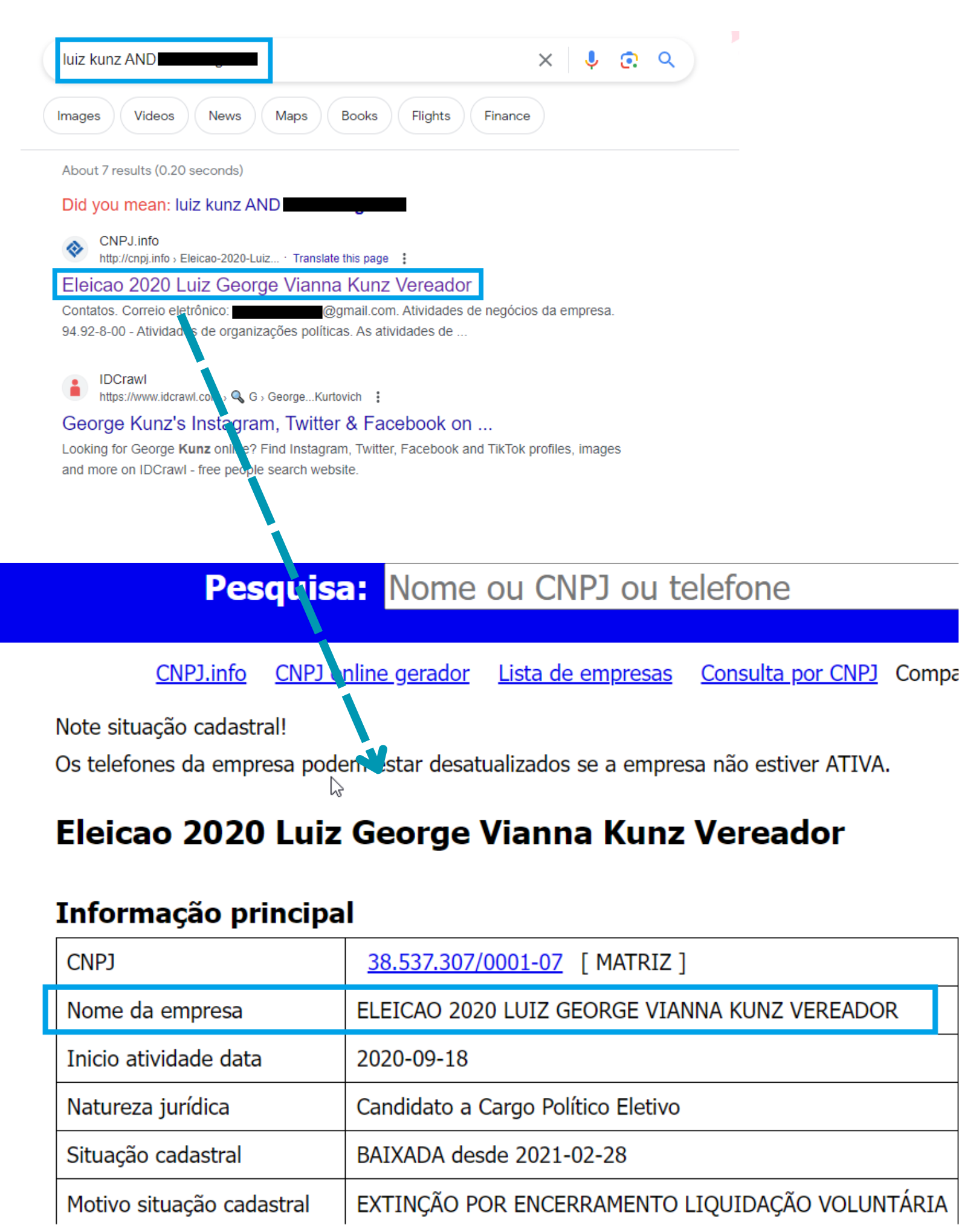
Another search on Facebook for accounts using the name “Luiz Kunz” yielded multiple accounts such as “Luiz Kunz,” “George Kunz,” and “Luiz Vianna.” The DFRLab identified seven Facebook accounts seemingly related to Luiz George Vianna Kunz, using his name and different photos of the same person, with a total of 12,146 friends between them. Four of the seven accounts were active at the time of publishing, sharing articles from the Brazil-Russia Friendship Association website by posting the same hyperlink across the different Facebook accounts.
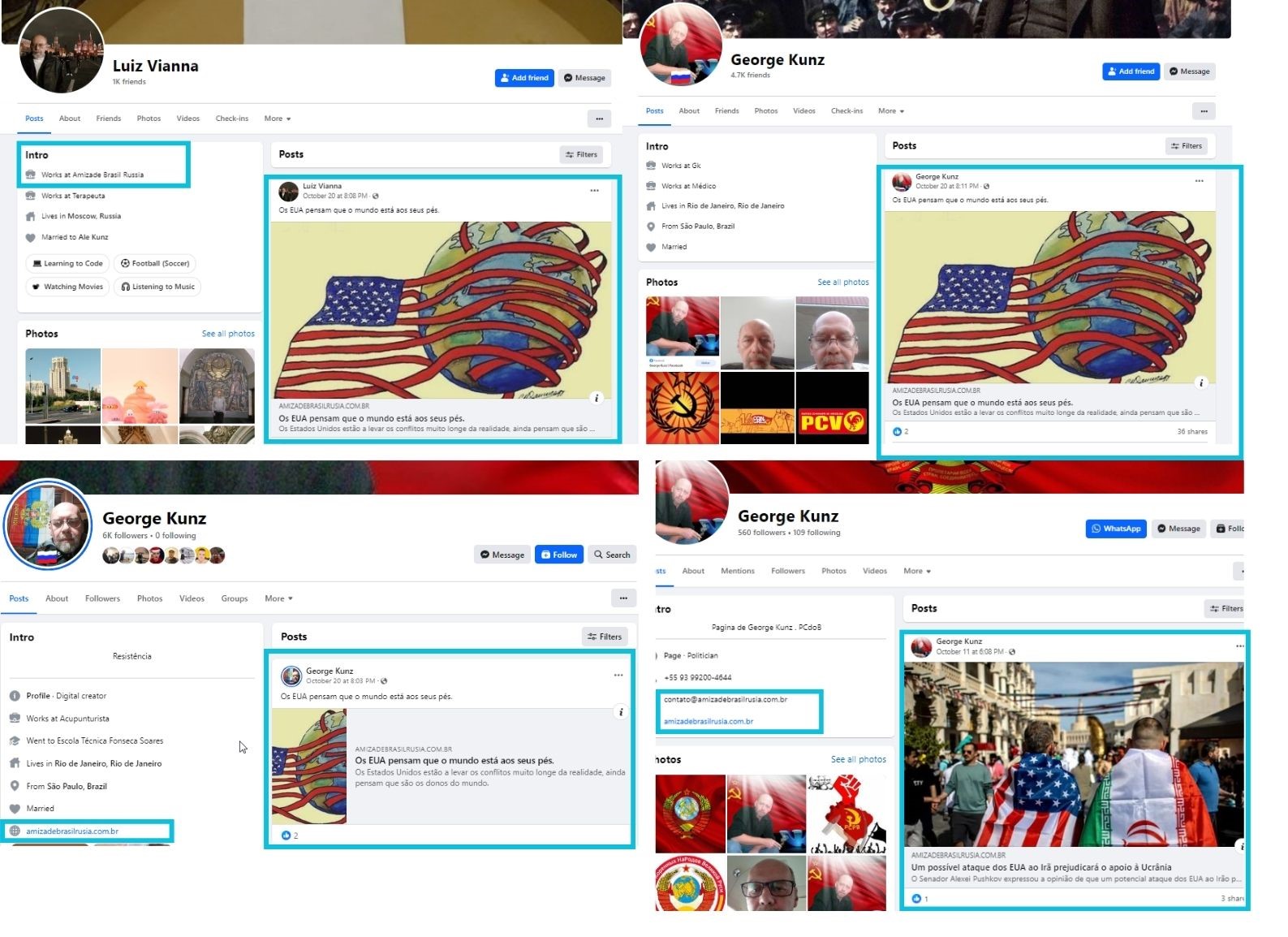
At the time of publishig, the bio’s description of the account “Luiz Vianna” said that he was living in Moscow, working at the Brazil-Russia Friendship Association website, and married to a woman named “Ale Kunz.” The DFRLab found that Ale Kunz was listed as the author of multiple pieces on the two websites.
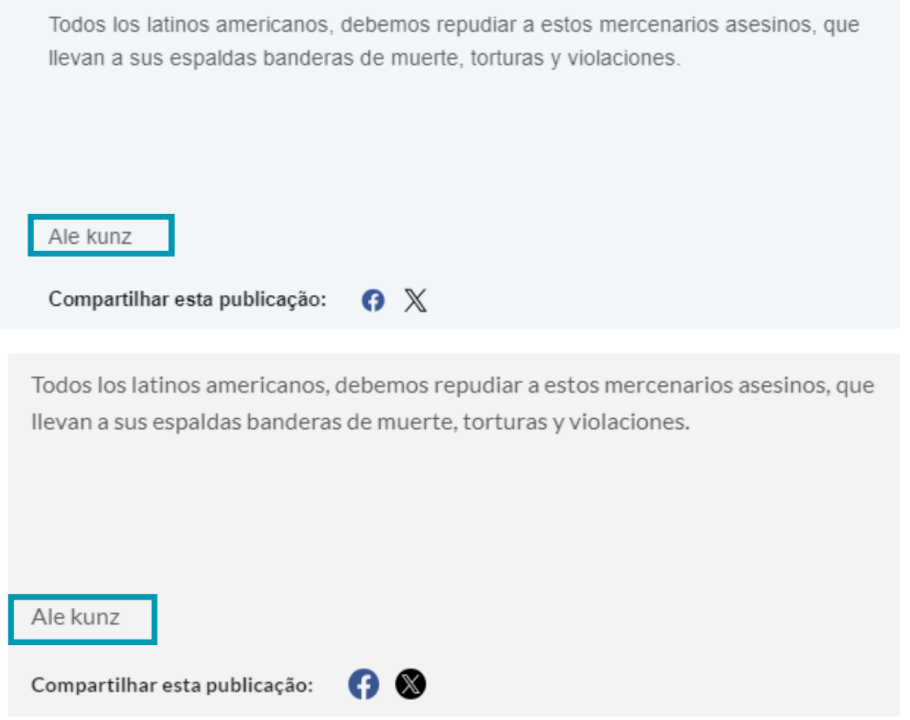
The couple also appeared in pictures published by the two websites to illustrate pieces about Russian culture and history. In a piece published on October 1, 2023, with the title “How is life in Moscow for Latin Americans?” an image showed the couple in the middle of Moscow’s Red Square.
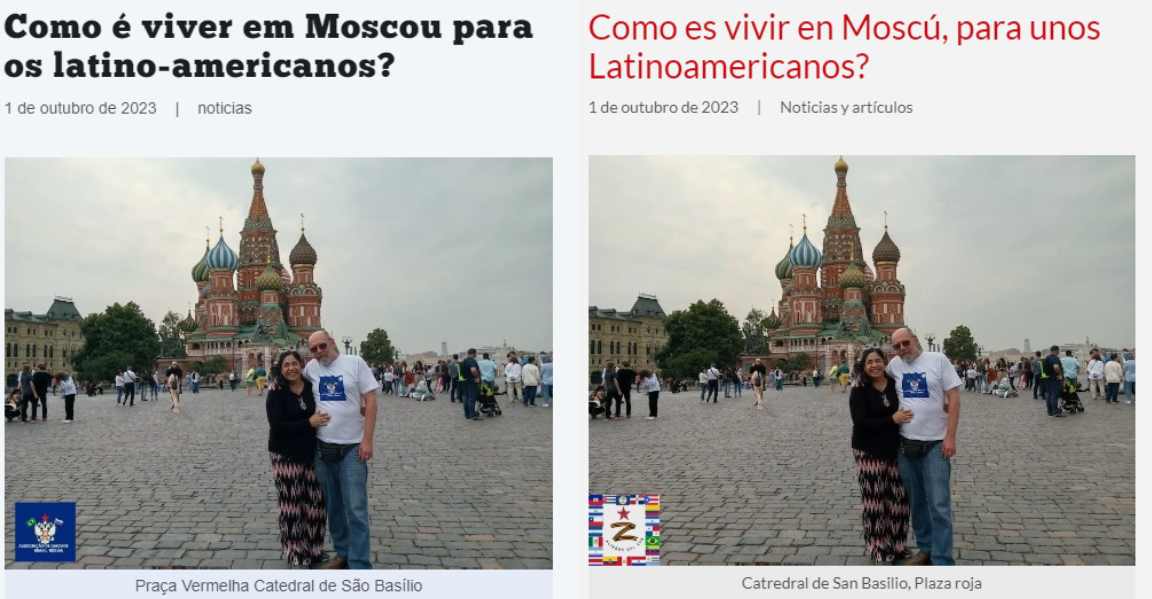
In another photo attached to an article published on September 24, 2023, on the Portuguese website, Luiz Kunz posed in front of the Lubyanka Building, the headquarters of the KGB. The article contained an interview with a person identified as Dmitry, who self-described as a former employee of the building.
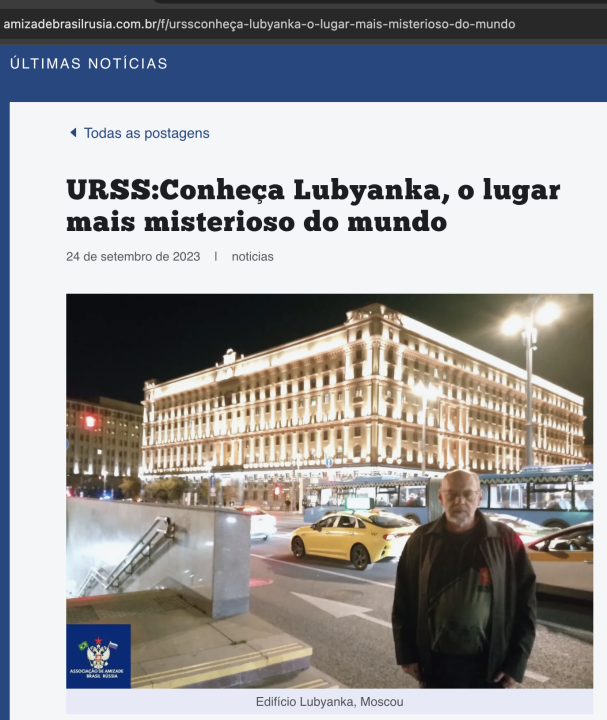
On August 16, 2023, the two websites also published a statement stating that the couple was living in Russia temporarily in a gesture of support for the country and to combat disinformation targeting the Russian regime.
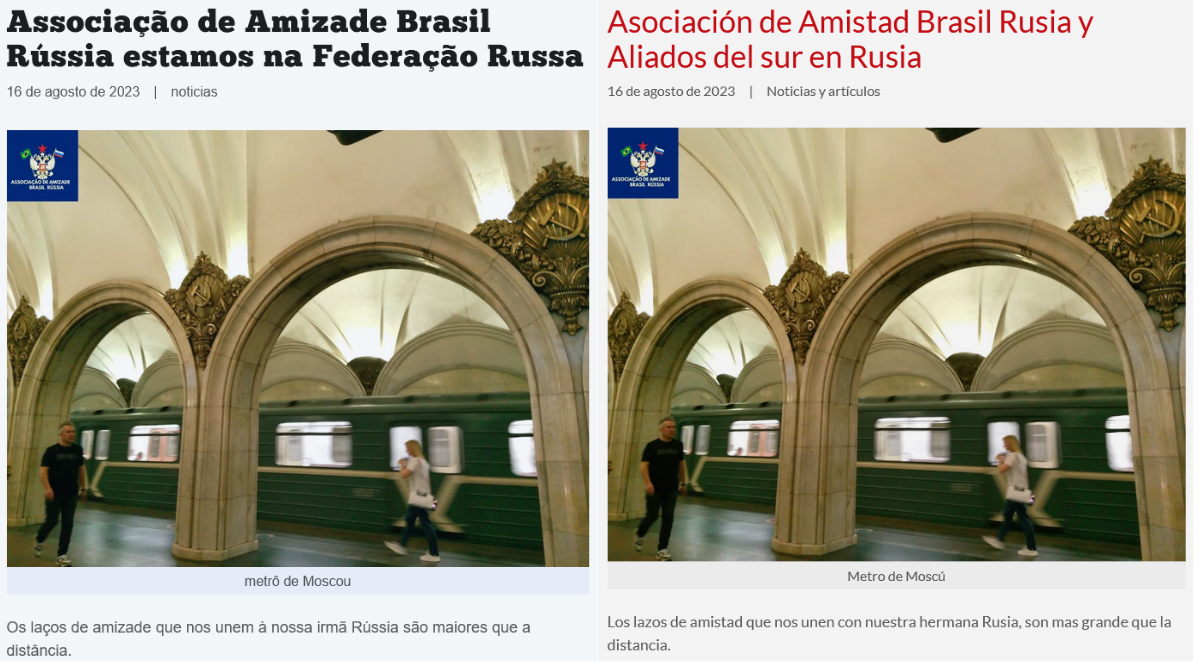
Cross-platform activity
The Portuguese-language website featured hyperlinks to multiple social media accounts, including YouTube (@BrasilRussia1917), X (@AliadosDelSur), Instagram (@Amizadebrasilrussia), Facebook (@AliadosDoSul), and WhatsApp (Amizade Brasil Russia group). The Spanish-language website included links for Facebook (@AleKunz) and X (@AliadosDelSur).
The social media buttons on the two websites also showed links between the two websites and Luiz and Ale Kunz. At the time of analysis, the two websites shared the same X account, @AliadosDelSur, matching the name of the Spanish-language website, while the account’s picture was the logo of the Brazil-Russia Friendship Association website. Clicking the Facebook button at the bottom of the Allies of the South webpage led to the personal Facebook account for Ale Kunz.
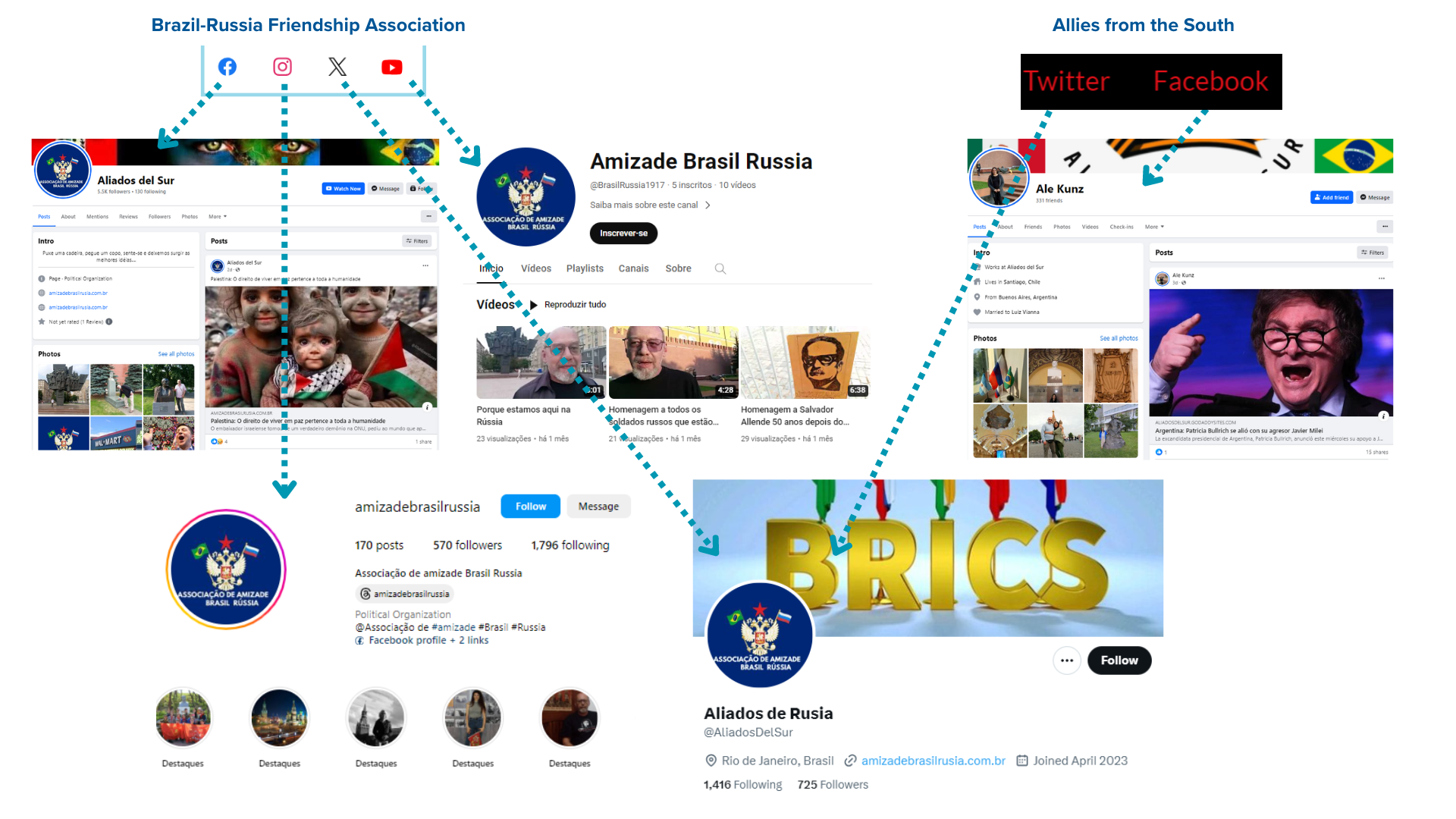
In addition, the DFRLab identified an extended network of nineteen accounts sharing articles from the websites. This network involved ten accounts on Facebook, as well as accounts on X, TikTok, and Russian social media network VK, including personal accounts, groups, and public pages.
To find these accounts, the DFRLab performed an advanced search on each platform using the following keywords: “Aliados del Sur,” “Amizade Brasil Rusia,” “Amizade Brasil Russia,” “George Kunz,” “Luiz Kunz,” “Luiz Vianna,” and “contato@amizadebrasilrusia.com.br,” the listed email address on the Brazil-Russia Friendship Association website, as well as the email address Kunz used to register the website.
Collectively, the ten Facebook accounts garnered more than 18,000 followers. There were four personal accounts showing Luiz Kunz’s name and photos, as well as five Facebook pages and one public group discussing and promoting left-wing ideologies. The pages and groups mentioned the Brazil-Russia Friendship Association website and its email address in their page descriptions. Accounts for Luiz and Ale Kunz also appeared as the administrators of some of the Facebook pages and groups, according to data from their page transparency sections. The pages and groups published links to articles on the websites in a coordinated way. For instance, on October 10, 2023, eight of the ten accounts shared an article from the Brazil-Russia Friendship Association website about the Western sanctions against Russia, some using identical text in reposting the content.
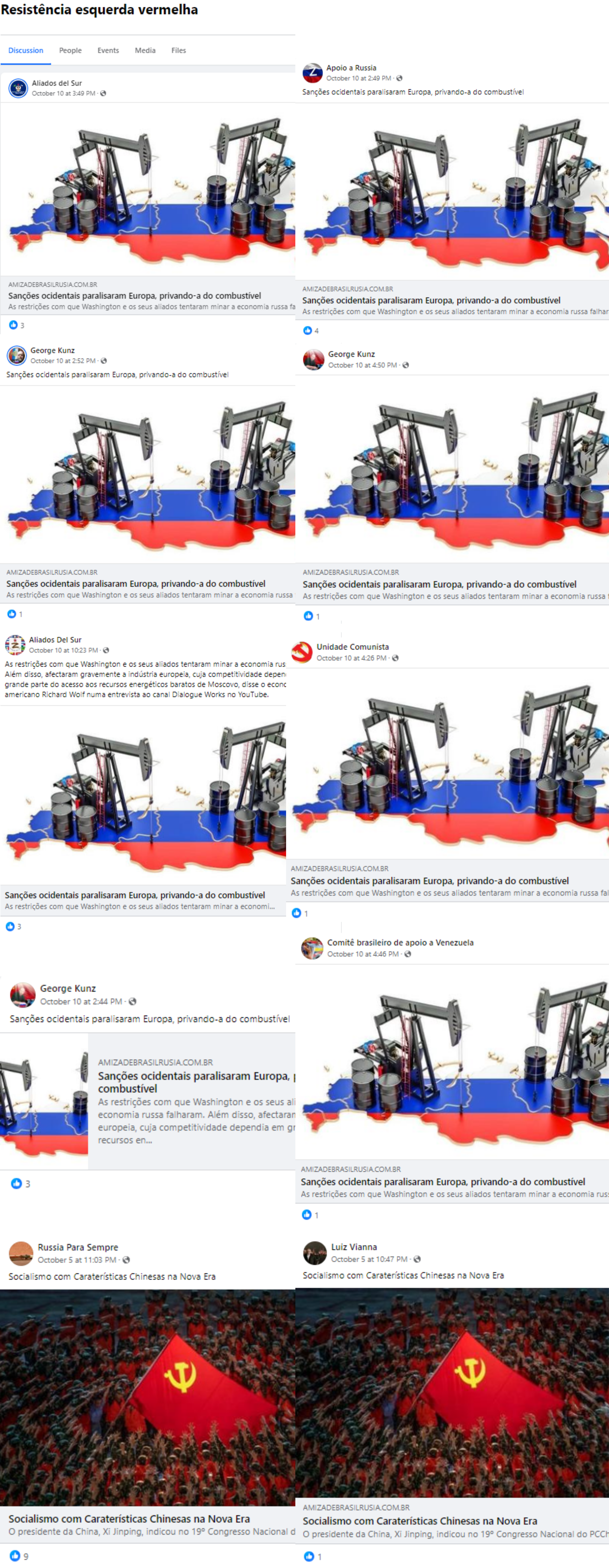
On X, there were three accounts with apparent links to the network. Two of them, @georgekunz and @georgekunz10, were personal accounts that used Kunz’s name and photos. The third, @AliadosdelsurRu, was an institutional account that used a similar name to the Spanish-language website, Aliados del Sur, and presented itself as the “Embassy of Russia’s friends.” The account shared articles from both websites, often the same articles on the same day.
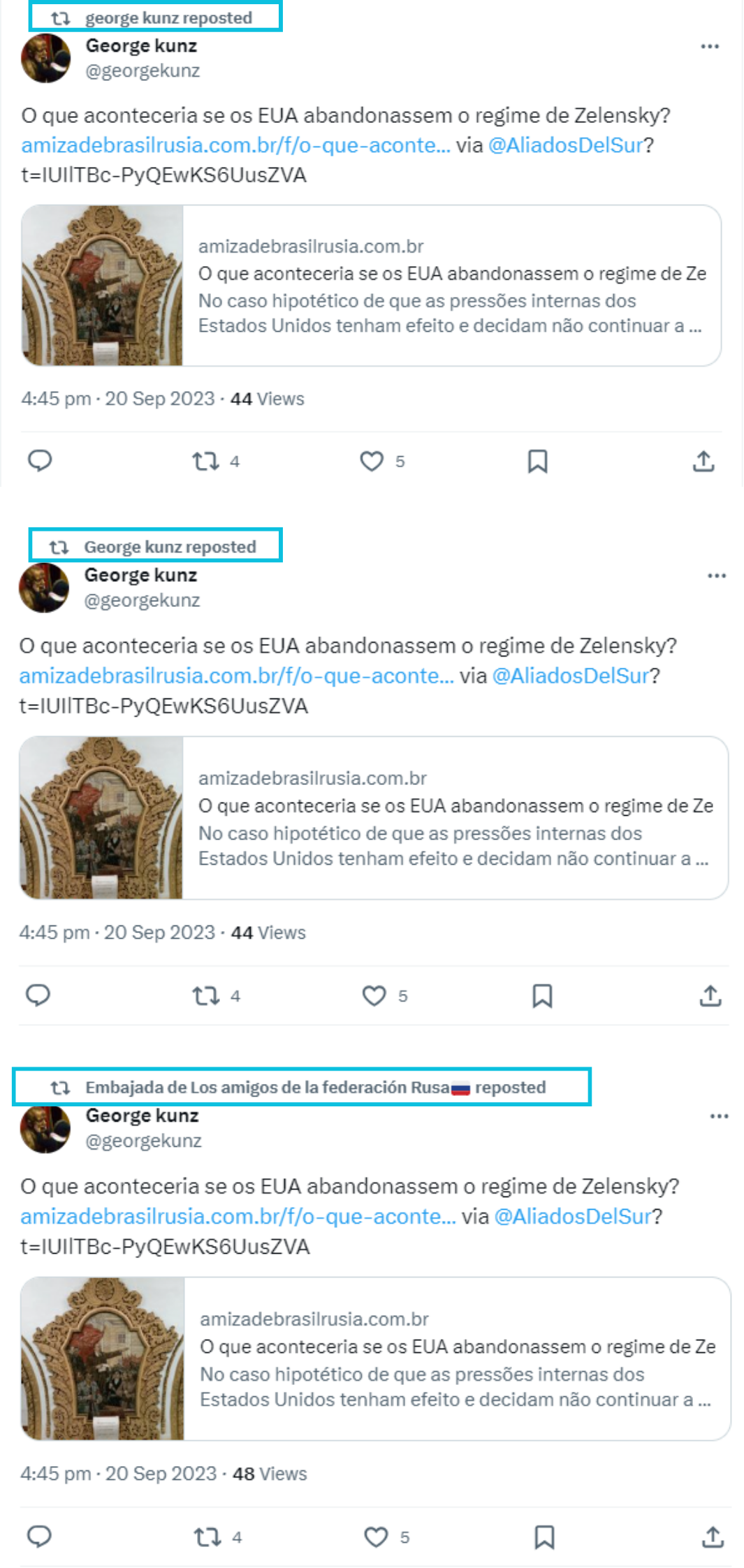
On TikTok, the DFRLab found two accounts related to George Kunz, @georgekunz and @georgekunz8. In total, they had 2,674 followers and promoted the same pro-Russian narratives spread by the two websites. In September 2023, the accounts both posted a video calling for people to also republish articles from the two sites.
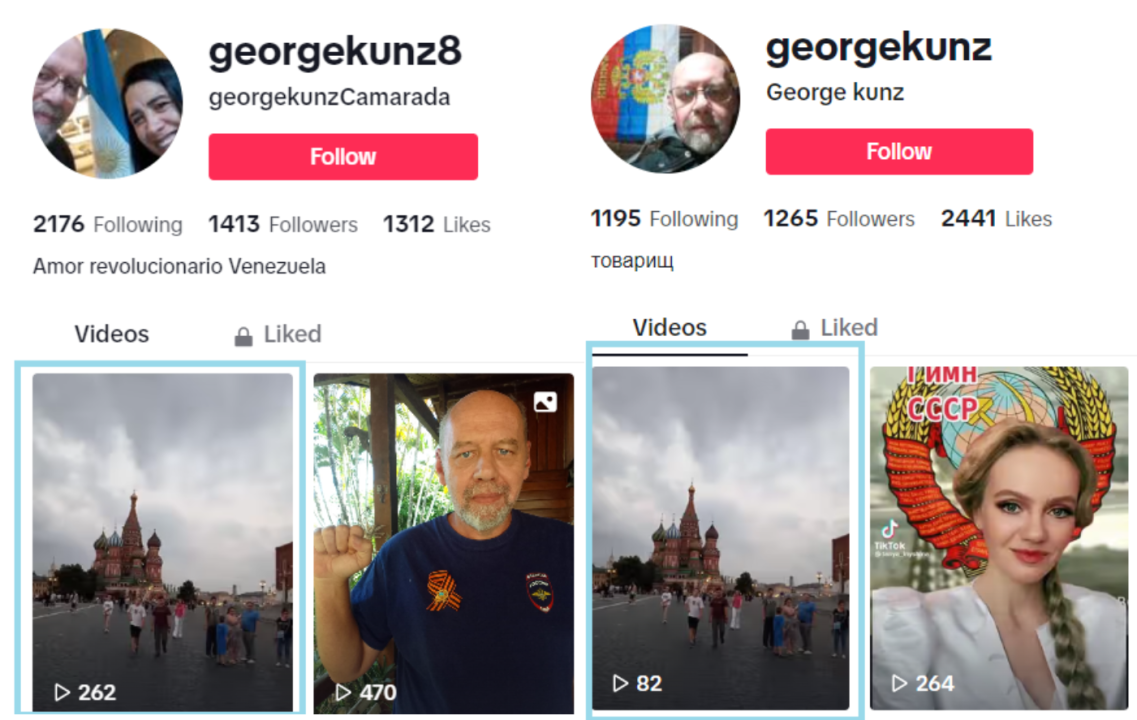
On VKontakte, the DFRLab found four accounts running a similar cross-posting strategy to amplify the content of the two websites. In total, they garnered more than 2,000 followers. The profile picture for one of the accounts, the Communist Party of Brazil (PCdoB), showed the logo of the Brazilian left-wing party and a brief description of its history. On October 14, 2023, the four accounts published the same article from the Portuguese-language website between 5:19 p.m. and 6:55 p.m., using the same text to introduce the post.
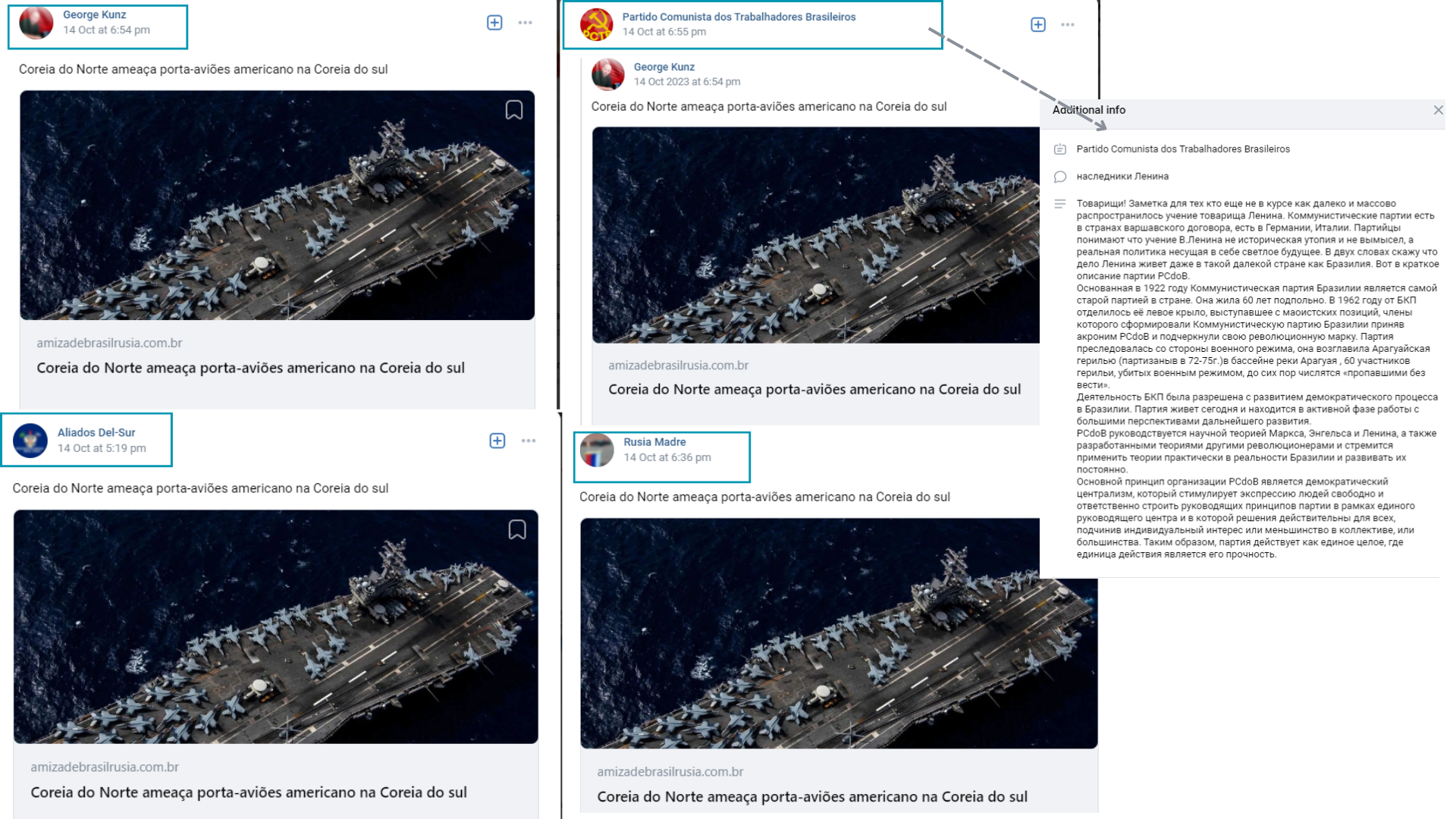
The DFRLab has reached out to Luiz and Ale Kunz for comment.
Cite this case study:
Beatriz Farrugia, “Pro-Russia network spreads propaganda and disinfo in Latin America,” Digital Forensic Research Lab (DFRLab), February 21, 2024, https://dfrlab.org/2024/02/21/pro-russia-network-spreads-propaganda-and-disinfo-in-latin-america.

